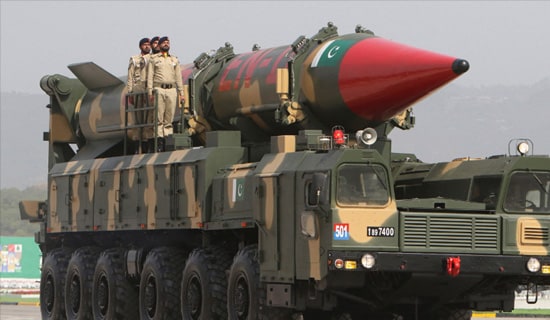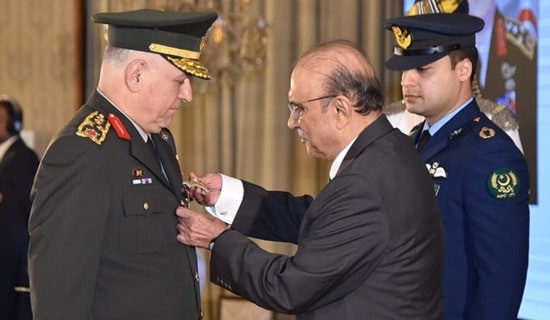On April 8-9, 2024, Russian Foreign Minister Sergey Lavrov paid an official visit to China, where he held talks with Chinese Foreign Minister Wang Yi.
The two foreign ministers discussed a wide range of issues related to bilateral cooperation and interaction in the international arena with a focus on joint efforts at the UN, the G20, BRICS, the Shanghai Cooperation Organisation (SCO), the Asia-Pacific Economic Cooperation (APEC), and other multilateral mechanisms and forums. The sides had a thorough exchange of views on a number of pressing matters, including the war in Ukraine crisis and the situation in the Asia-Pacific region.
In his opening speech for his meeting with Xi Jinping, Lavrov stated that relations with China are one of Moscow's priorities. He also noted that Vladimir Putin's recent reelection "guarantees the succession in [Russia-China] relations and our commitment to further progress across all areas."[1] Lavrov praised record-braking trade turn-over with China, dubbing relations between the two countries as "a 'locomotive of efforts' that is gaining more and more supporters of establishing more just multi-polar world order, and ensuring security on the Eurasian continent."[2]
During the joint press conference with Wang Yi, Lavrov then stated: "The issues we are addressing in the economy, trade, investment, and innovative technology are directly related to the effort to establish a fair multipolar world order free from diktat, hegemony, and neo-colonial and colonial practices, which are being used to the utmost extent by the United States and the rest of the collective West that has bowed without question to Washington's will."[3] For the latter he blamed namely the US and, "the rest of the collective West that has bowed [their heads] without question to Washington's will."[4]
It is worth noting that, during the visit, the Russian media outlet Vzglyad reported that Wang Yi, director of the Chinese Communist Party Central Committee Foreign Affairs Commission Office, proposed to Lavrov the idea of the "dual deterrence" of Western countries, which should be considered as a countermeasure to the concept of "dual containment" promoted by the United States.
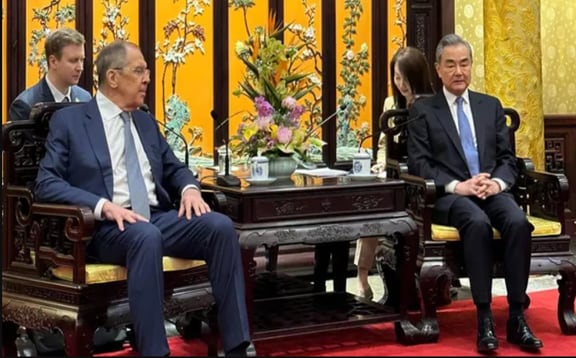
Russian Foreign Minister Sergei Lavrov and Wang Yi, head of the Office of the Foreign Affairs Commission of the Central Committee, in Beijing. (Source: MID spokesperson, Maria Zakharova / Telegram).
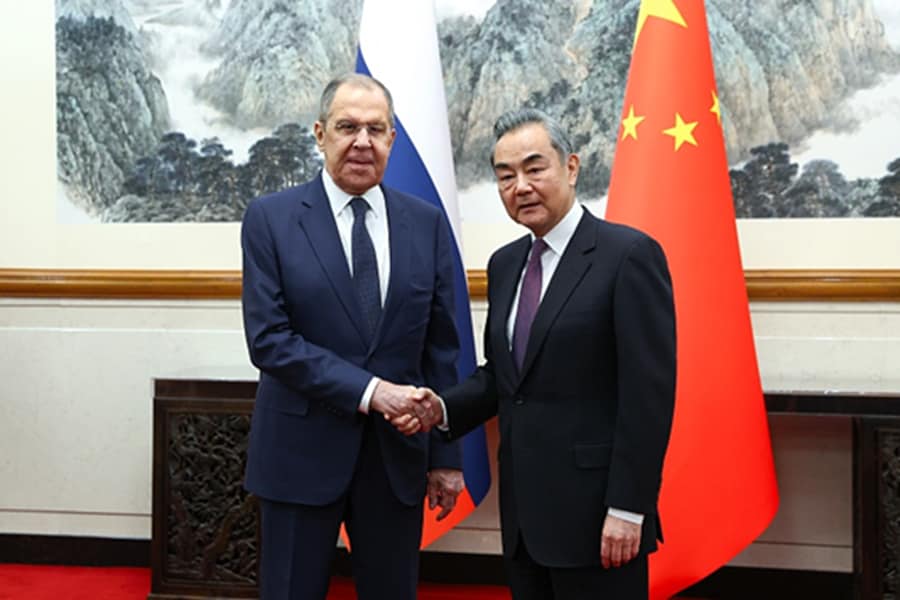
(Source: Mid.ru, April 9, 2024)
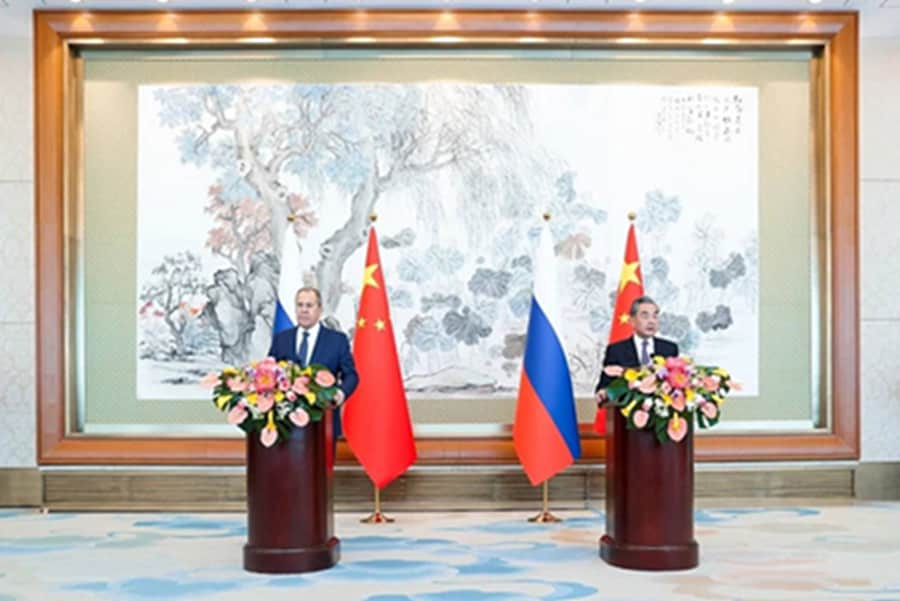
(Source: Mid.ru, April 9, 2024)
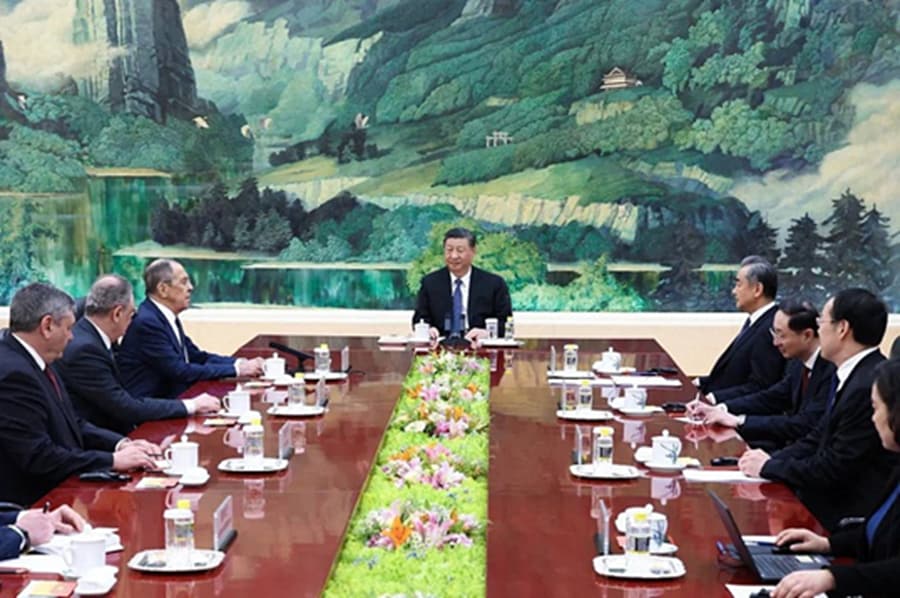
(Source: Mid.ru, April 9, 2024)
Below is Vzglyad's article:[5]
"Washington Is Trying To Slow Down The Formation Of A Multipolar World"
SUPPORT OUR WORK

"The head of Russian foreign ministry Sergey Lavrov met with his Chinese colleague Wang Yi in Beijing. The diplomats discussed a wide range of issues related to the future partnership between Russia and China. Lavrov noted that relations between the two countries have reached an unprecedented level, and the dialogue between the states is based on the principles of mutual respect and trust.
"Following the result of the meeting, the parties have reached an agreement on methods to combat sanctions via mechanisms of the SCO and BRICS. In addition, it was decided to launch a dialog on Eurasian security that will involve other sympathizer-countries. This initiative was prompted by Russia and China's desire to strengthen security in the region, especially in light of OSCE and NATO's incapacity to fulfill this said function.
"Furthermore, Moscow and Beijing condemned the US for interfering in the affairs of other states and regions. In this regard, Wang Yi proposed to Lavrov the idea of 'dual deterrence' of the Western countries – it should come as a countermeasure to the concept of 'dual containment' promoted by the United States, with the help of which Washington is trying to slow down the formation of a multipolar world.
"Lavrov explained that Russia and China will jointly counter such attempts, while 'the United States and its allies are trying to consolidate their unjust position in the international system for ages to come.' 'We remember how our leaders formulated the tasks of standing back-to-back, shoulder-to-shoulder against attempts to slow down the objective course of history,' the head of the Russian foreign ministry added.
"The diplomats also reiterated [their] similar stance on the conflict in Ukraine: Moscow and Beijing perceive futile any international meetings that ignore Moscow's legitimate security demands. As for the 'peace formula' proposed by Volodymyr Zelenskyy, it represents an ultimatum and doesn't correspond to the current international realities."
Russian Academic Tkachenko: Russia And China "Are Categorically Disgruntled With The Western Sanctions Policy"
"'Speaking about 'dual deterrence,' Russia and China send an important signal to the US and Europe. With this step, we are once again hinting to Western countries that it is high time for them to change their approaches to politics,' believed Stanislav Tkachenko, professor at the Department of European Studies, Faculty of International Relations, St. Petersburg State University, and an expert at the Valdai Discussion Club. 'Moscow and Beijing are to a great extent concerned about the same issues. This [fact] facilitates our cooperation. For instance, both countries are categorically disgruntled with the Western sanctions policy. Not only does the US impose restrictions on Russia, but it also tries to force China to comply with it. Opposing such pressure unites us,' Tkachenko said. 'In addition, the most important point of interaction between states is the desire for the governed building of a multipolar world. Unlike, for instance, the US, which, despite realizing the inevitability of this process, strives to slow it down and preserve its own hegemony,' he emphasized.
"'Until recently, Moscow and Beijing didn't object to the process of building a multipolar world to be conducted on the basis of the UN, for example, by reducing Washington's influence in the governing bodies of this organization. However, the US are not negotiating on this issue,' Tkachenko explained. 'Thus, Russia and China decided to move on to 'Plan B' on building a multipolar world and confronting the West. A cooperation under the BRICS and SCO could come as such a plan. Within this organization the states are able to deal with the issues related to the economy, sanctions and Eurasian security regardless of the opinion of Western states,' he emphasized."
Russian Academic Kashin: "Further Rapprochement Between Moscow And Beijing Should Be Expected"
"In addition one can expect for Moscow and Beijing to establish parallel financial structures that would boost trade in national currencies and consequently help circumvent sanctions more effectively, argued Vasily Kashin, director of the Center for Comprehensive European and International Studies (CCES) at the HSE National Research University. 'The realization of this process can occur on the basis of BRICS and SCO. It's quite difficult to achieve it in conditions when trade with a number of member-states [of these organizations] is not balanced, but there are some prospects,' Kashin added. 'This is evidenced, for example, by the bilateral interaction between Russia and China. In particular, we have almost switched to transactions in national currencies. In addition, the countries have built a system that allows for [international] trade under total sanctions. True, not everything is working smoothly, but huge progress has already been made in this area,' he noted.
"'As for the statement concerning 'dual detterence,' it evidences to intentions to establish a closer level of coordination between Russia and China. The US tries to contain our countries, relying on its system of alliances. This prompts Moscow and Beijing to cooperate in different spheres,' Kashin stressed. 'Such a coordination can be realized within the framework of establishing our own technological base. It's also likely to be realized by redirecting the supply chains of goods. Joined diplomatic steps of our countries and joint military exercises are also possible,' he stressed.
"'On this background, further rapprochement between Moscow and Beijing should be expected. Most likely, Vladimir Putin will visit China after his inauguration, in response to Xi Jinping's last visit. It's likely that new agreements between the states will be reached during the visit,' Kashin explaned. 'It'is also important that the Celestial Empire [i.e., China] recognizes the impossibility of settling the crisis around Ukraine without Russia's involvement. Beijing's vision runs counter to the 'Zelenskyy's formula.' Wherein, the PRC does not solidarize with Moscow completely, as this hinders its role of a mediator. In this case, our interaction is more subtle,' he noted."
Russian Political Analyst Asafov: "We Designate Not Only China As Our Strategic Partner, But Also Much Of Asia"
"In general, counteracting sanctions in the current environment and building a multipolar world requires deployment of special economic and political mechanisms, which better be kept secret for the time being. Otherwise, as political analyst Alexander Asafov pointed out, the US may use this information and develop countermeasures. 'However, we can presume in what directions cooperation between our countries will develop. It will be about building new financial contours that are outside the control of the US. Also [let's] note the creation of a logistical space and new payment instruments on the basis of the SCO and BRICS, the growth of mutual trade turnover and etc,' Asafov said. 'Importantly, we designate not only China as our strategic partner, but also much of Asia, including India and Pakistan. These states are ready to share our values, respect Russia's sovereignty and intend to cooperate despite Washington's demands. In fact, by interfering into the creation of a multipolar world, the US only promptes us to cooperate,' Asafov concluded."


